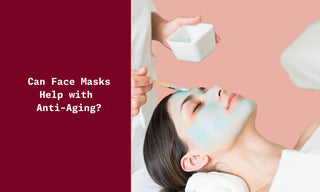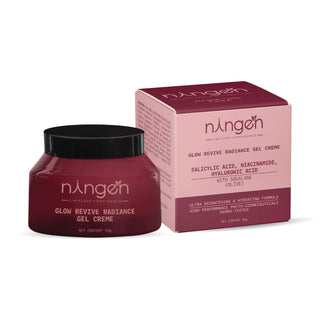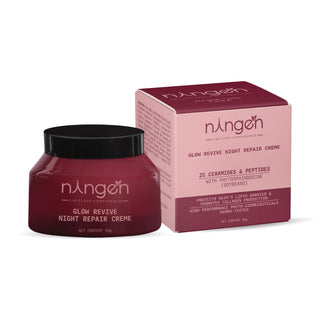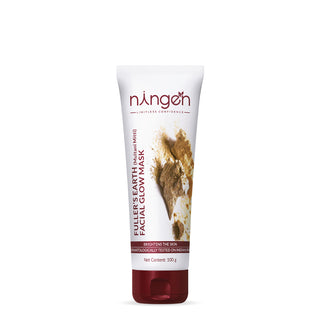Anti-aging is a top concern for many when it comes to skincare, and face masks have become a popular solution. But can they help turn back the clock on aging skin?
It says-” Age is merely a number, given that your skincare routine includes the right face mask”.
In this blog, we’ll dive into the world of face masks, exploring their benefits, and key ingredients, and we’ll know can face masks help with anti-aging like fighting against fine lines, wrinkles, and dullness.
Discover how a simple addition to your skincare routine might just be the secret to youthful, glowing skin!
In This Article;
- Understanding Aging Skin
- Causes of Skin Aging
- Benefits of Anti-Aging Face Masks
- Can Face Masks Help with Anti-Aging?
- Targeted Ingredients for Aging Skin
- Types of Anti-Aging Face Masks
- Limitations of Face Masks in Anti-Aging
- Integrating Masks into Your Skincare Routine
- Bottom Line
- Quick View
- Frequently Asked Questions
Understanding Aging Skin
Aging is a natural process, which affects all layers of the skin. Over time, skin can get thinner, lose fat, and no longer look as plump & smooth as it once did. Aging skin may also experience:
- Reduced production of natural oils, making it drier.
- Loss of elasticity, paving way for wrinkles and sagging.
- Longer healing times, increase vulnerability to injury.
- Development of benign growths, such as skin tags.
Caring for aging skin is crucial to maintain its health and appearance. A proactive approach includes protecting skin from the sun, not smoking, eating a healthy diet, exercising, and following a consistent skincare routine tailored to one's skin type.
Causes of Skin Aging
Skin aging is a natural process influenced by a combination of factors:
- Genetic Makeup: Intrinsic aging is determined by an individual's genes and is a natural part of the aging process.
- Sun Exposure: Prolonged ultraviolet (UV) exposure causes photoaging, resulting in wrinkles, roughness, and pigmentation changes.
- Pollution: Environmental pollutants can lead to oxidative stress, damaging skin cells and accelerating aging.
- Lifestyle Choices: Smoking and excessive alcohol consumption contribute to premature skin aging by affecting collagen production and skin elasticity.
- Diet: Poor nutrition can lead to deficiencies impacting skin health and appearance.
- Stress: High stress can increase the production of hormones that damage collagen and elastin in the skin.
- Sleep: Lack of sleep can lead to increased signs of aging and slower recovery from environmental stressors.
Preventive actions, such as using sunscreen, maintaining a balanced diet, and leading a healthy lifestyle, can help mitigate some of these effects.
Benefits of Anti-Aging Face Masks
Face masks, especially those labeled with anti-aging properties, have become a popular addition to skincare routines for individuals seeking to address the visible signs of aging. These facial masks are designed to offer various benefits to the skin, often incorporating active ingredients that target aging concerns. The advantages of using an anti-aging face mask include:
- Hydration: Masks can deliver intense moisture to the skin, which is crucial for maintaining a plump, youthful appearance.
- Exfoliation: Some masks help in removing dead skin cells, and end up revealing fresher, more radiant skin underneath.
- Pore Refinement: Regular application can reduce the appearance of pores, making skin look smoother.
- Firmness: Certain masks are formulated to tighten and firm the skin, thereby reducing the look of sagging and wrinkles.
- Brightening: Formulations aimed at treating dark spots can even out skin tone and enhance skin brightness.
- Calming and Soothing: Masks can also provide relief for sensitive skin, helping to calm redness and irritation.
When incorporated into a regular skin care routine, face masks can support skin’s overall health, and when tailored to skin type—whether it’s dry skin, oily skin, or acne-prone skin—the right face mask can be a powerful ally in the quest for healthy skin.
Also read: How to choose the right face mask for your skin concern?
Can Face Masks Help with Anti-Aging?
Yes, face masks can help with anti-aging when used as part of a comprehensive skincare routine. While they are not a magic solution, they can effectively address various signs of aging, such as fine lines, wrinkles, dullness, and loss of elasticity.
Here's how face masks contribute to anti-aging:
1. Deep Hydration and Moisture Retention
Hydrated skin appears plumper & more youthful, reducing the occurrence of fine lines. Masks with ingredients like hyaluronic acid, glycerin, and aloe vera provide deep hydration that helps maintain the skin's elasticity.
2. Boosting Collagen Production
Many anti-aging masks contain ingredients like peptides, retinol, and vitamin C, which stimulate collagen production. Increased collagen helps to firm the skin, reduce wrinkles, and improve overall skin texture.
3. Brightening and Evening Skin Tone
Masks that contain antioxidants, niacinamide, and vitamin C can fade dark spots and improve skin tone, giving the skin a brighter, more youthful appearance.
4. Antioxidant Protection
Anti-aging masks often contain antioxidants such as green tea, vitamin E, and ferulic acid, which protect the skin from free radicals and environmental damage that accelerate aging.
5. Immediate Plumping and Firming Effects
Some masks provide an immediate tightening and lifting effect, temporarily smoothing out wrinkles and giving the skin a firmer look, making them great before special events.
6. Exfoliation and Cell Turnover
Masks containing alpha hydroxy acids (AHAs), beta hydroxy acids (BHAs), or enzymes gently exfoliate the skin, removing dead skin cells and encouraging cell turnover, which can reduce the appearance of aging.
7. Enhanced Product Absorption
Masks can enhance the absorption of subsequent skincare products, allowing active ingredients in serums and moisturizers to penetrate deeper, maximizing their anti-aging benefits.
8. Calming and Soothing Properties
Masks with soothing agents like chamomile, aloe, and lavender help calm inflammation and reduce redness, which can make aging skin appear healthier and more vibrant.
9. Detoxification and Deep Cleansing
Charcoal, clay, and mud masks can draw out impurities and unclog pores, improving the skin’s overall appearance and texture, which can become rougher with age.
10. Stress Relief and Relaxation
Taking time to use a face mask can also reduce stress, which indirectly benefits the skin since stress is known to accelerate the aging process.
Limitations
While face masks can provide visible improvements, they are most effective when used regularly and in combination with other skincare practices, such as using sunscreen, maintaining a balanced diet, and avoiding smoking. For deeper anti-aging results, combining face masks with other treatments like serums, professional facials, and dermatological procedures is recommended.
Targeted Ingredients for Aging Skin

Types of Anti-Aging Face Masks
When seeking out face masks to aid with anti-aging, it’s important to understand the variety available and how they can address different skin concerns, from wrinkles and dark spots to loss of elasticity and hydration. Here is an overview of some common types of anti-aging face masks:
1. Gel Masks
Those frequently favor gel masks with dry, dehydrated, or sensitive skin due to their soothing and cooling properties. These masks typically contain water-based ingredients that can help hydrate and plump the skin. Active ingredients in gel masks may include antioxidants like vitamin C to combat free radical damage, as well as hydrating compounds such as hyaluronic acid and glycerin.
2. Peel-Off Masks
Peel-off masks are formulated to remove the outermost layer of dead skin upon physical removal. This type of mask can improve the skin’s overall texture and sometimes help with the appearance of pores. Ingredients often found in peel-off masks catered to anti-aging can include fruit extracts like papaya or pineapple which contain natural enzymes that gently exfoliate the skin.
3. Overnight Masks
Overnight masks are designed to provide intensive hydration and nourishment while you sleep. They are usually thicker in consistency and may contain a blend of anti-aging ingredients such as peptides, retinol, and antioxidants. Stay on the skin for extended periods; overnight masks can assist in the healing and rejuvenation of the skin, potentially reducing the appearance of fine lines and improving skin firmness.
4. DIY Face Masks
Homemade face masks may use natural ingredients like avocado for hydration, honey for its antibacterial properties, or oatmeal for its soothing effect. While DIY masks can provide some benefits, they lack the concentrated active ingredients found in commercially available masks, and their effects on anti-aging are likely to be more subtle.
Limitations of Face Masks in Anti-Aging
1. Avoiding Overuse and Skin Reactions
To avoid overuse and skin reactions when using face masks:
- Choose masks, that are suitable to your skin type (sensitive, dry, oily, or acne-prone).
- Limit use to 1 to 3 times per week, based on mask potency and skin sensitivity.
- Conduct a patch test before full-face application.
- Follow instructions carefully, especially for application time.
- Stop use if adverse reactions like redness, burning, or itching occur.
Temporary Results vs. Long-Term Solutions
Face masks offer temporary improvements in skin texture, hydration, and radiance, making them great for quick fixes. However, their effects are short-lived compared to long-term solutions like daily use of products with retinoids or antioxidants, a healthy lifestyle, and professional treatments such as laser therapy or injectables. For lasting anti-aging results, incorporate masks as a complementary part of a comprehensive skincare regimen rather than the primary method.
Integrating Masks into Your Skincare Routine
Face masks can enhance your skincare routine when chosen thoughtfully based on skin type and concerns. Masks with hyaluronic acid boost hydration, while those with salicylic, glycolic, or lactic acids help exfoliate and manage dark spots.
Identify your skin type—sensitive, oily, dry, or mature—and select a mask accordingly. For oily skin, clay masks are ideal for absorbing excess oil and minimizing pores, while cream masks are better for dry skin, providing needed moisture and replenishment.

The Bottom Line
Thanks for reading our article on whether Face Masks Help with Anti-Aging. Face masks can be a valuable addition to your anti-aging skincare routine, offering hydration, exfoliation, and antioxidant protection that help reduce the visible signs of aging. While they provide temporary improvements, masks work best when paired with a comprehensive skincare regimen and healthy lifestyle. Choose masks tailored to your skin type and specific concerns, and use them regularly but thoughtfully to support your journey towards youthful, glowing skin.
Quick View:
Face masks can help with anti-aging by hydrating, firming, exfoliating, and protecting the skin. They are great for addressing signs of aging like fine lines, wrinkles, and dullness but offer temporary results. For lasting effects, incorporate masks into a broader skincare routine with proven anti-aging products and treatments. Choose masks based on your skin type and concerns, and use them wisely to avoid overuse and skin reactions.
Frequently Asked Questions
Q1. Can face masks reverse aging?
Face masks can help reduce signs of aging like fine lines and dullness but do not reverse aging; they offer temporary improvements.
Q2. What ingredients should I look for in anti-aging face masks?
Look for ingredients like hyaluronic acid, retinol, peptides, vitamin C, and antioxidants for anti-aging benefits.
Q3. How often should I use anti-aging face masks?
Use anti-aging masks 1-3 times per week, depending on your skin type and the mask’s potency.
Q4. Are overnight masks effective for anti-aging?
Yes, overnight masks are effective as they deliver intensive hydration and anti-aging ingredients like peptides and retinol over a longer period.
Q5. Can DIY face masks help with anti-aging?
DIY masks can provide some benefits like hydration and soothing, but they lack the concentrated active ingredients found in commercial masks.
Q5. What type of mask is best for oily, aging skin?
Clay masks are ideal for oily, aging skin as they absorb excess oil and reduce pore appearance while providing anti-aging benefits.
Q6. Do anti-aging face masks have any side effects?
Overuse or masks with strong actives can cause irritation, redness, or dryness. Always patch-test new masks before full use.
Q7. Can face masks replace other anti-aging skincare products?
No, masks should complement your routine but not replace other anti-aging products like serums, moisturizers, and sunscreen.
Q8. Do face masks help with skin elasticity?
Yes, masks containing collagen-boosting ingredients like peptides and retinol can improve skin elasticity and firmness.
Q9. Can masks help with dark spots and uneven skin tone?
Masks containing brightening ingredients like niacinamide, vitamin C, and AHAs can help reduce dark spots and even out skin tone.











